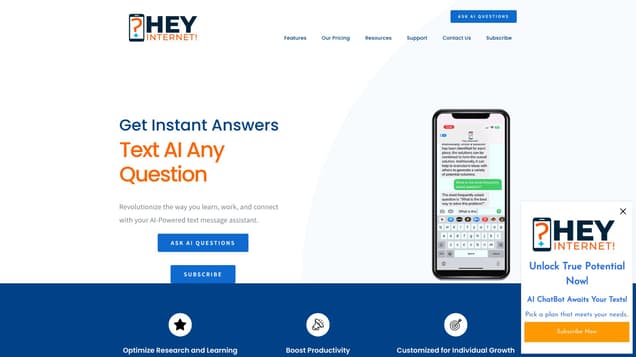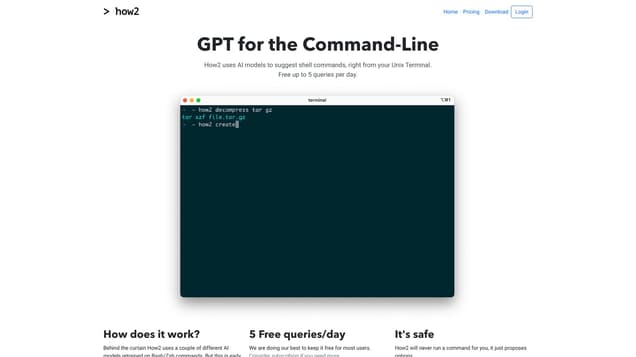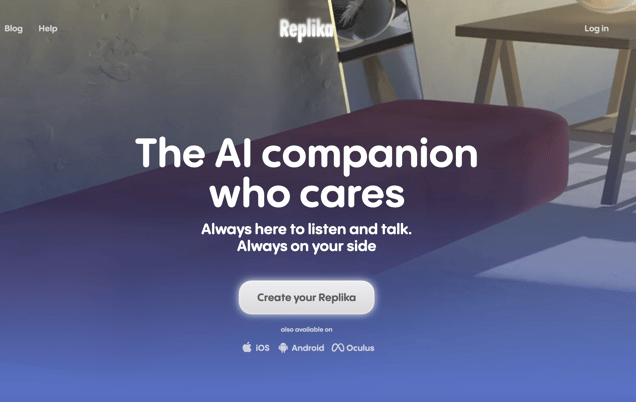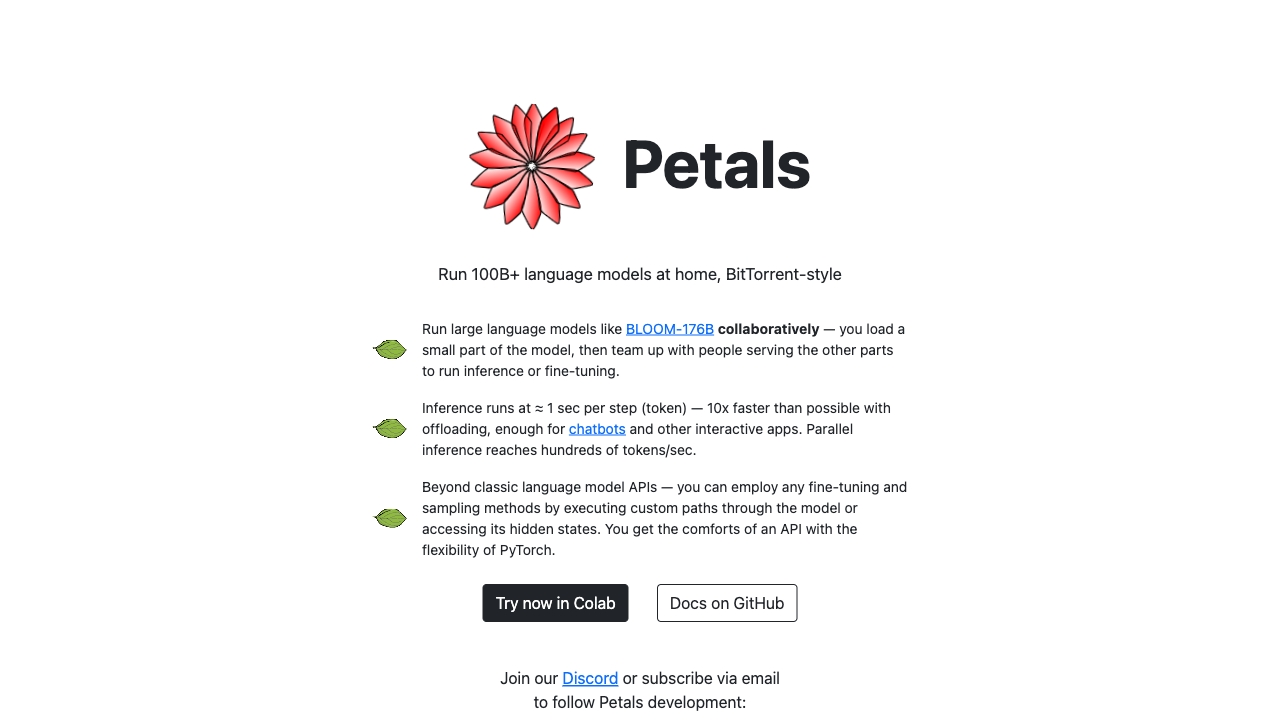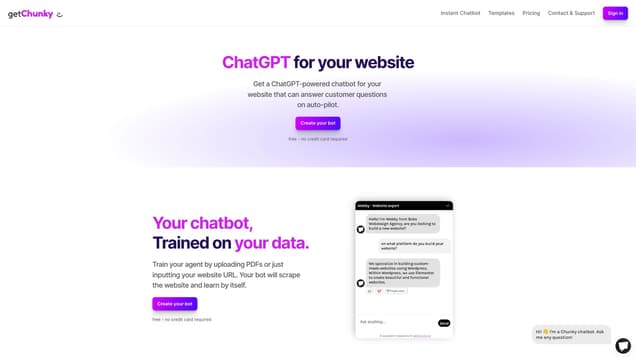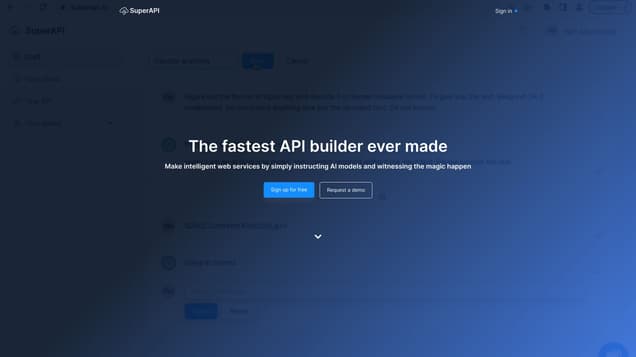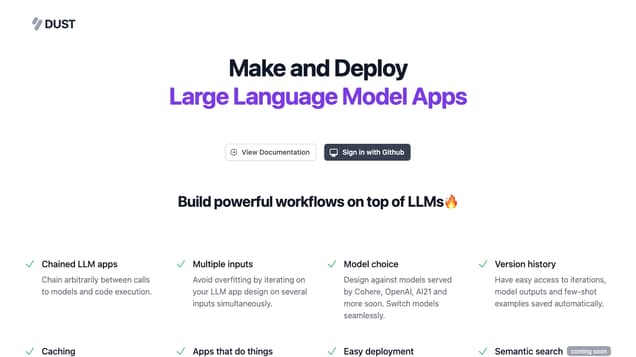
What is Dust?
Dust is an AI assistant designed to enhance team productivity and decision-making. It utilizes advanced language models, up-to-date company information, collaboration tools, and a flexible platform. With Dust, teams can improve content creation, gain deeper insights into their surroundings, and make more informed choices.
Information
- Revenue
- $12.50M
- Language
- English
- Price
- Contact for Pricing
Pros VS Cons
- Pros
- Dust is a productivity tool that increases efficiency, assists with daily tasks, answers emails, summarizes documents, and extracts structured data while offering clear usage limitations, privacy-consciousness, and ongoing improvements.
- Cons
- However, Dust is incompatible with Google Docs and Google Sheets, has limitations on model context size, requires browser tab selection, and only offers support through email/Discord, with a cost associated and specific keyboard shortcuts required, while not supporting non-text content and sending tab content to servers.
Freework.ai Spotlight
Display Your Achievement: Get Our Custom-Made Badge to Highlight Your Success on Your Website and Attract More Visitors to Your Solution.
Website traffic
- Monthly visits45.77K
- Avg visit duration00:01:35
- Bounce rate71.44%
- Unique users--
- Total pages views98.94K
Access Top 5 countries
Traffic source
Dust FQA
- What is Dust?

- How can Dust be used?

- What is the focus of Dust?

- What does Dust aspire to do?

- What are the features of Dust?

Dust Use Cases
Use Dust for unified and safe access to GPT-4.
Connect Dust to your team’s data and break down knowledge silos with always up-to-date answers in a chat UI.
Get your teams up to speed on AI.
Let your team share prompts and conversations to ramp up on the potential of generative AI for their tasks.
Get suggestions from Dust on documentation updates and improvements based on ongoing internal conversations and decisions.
Build custom Large Language Model apps on top of your company data. Let Dust assist you with the details of working with LLMs as you adapt them to your specific needs.
Augmenting humans, not replacing them
Uncompromising on data security & privacy
Hard problems over hype
Building with an AI core
